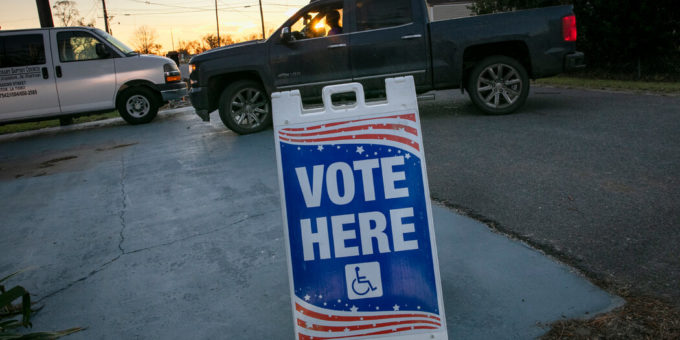
WASHINGTON — The Supreme Court on Tuesday reinstated a congressional voting map in Louisiana that a federal judge had said diluted the power of Black voters.
The court’s three liberal members dissented.
The Supreme Court’s brief order, which included no reasoning, blocked the judge’s order and granted a petition seeking review in the case. The justices will, the order said, hold the Louisiana case while the court decides a similar one from Alabama in its next term.
The dispute in Louisiana is part of a pitched battle over redistricting playing out across the country. Civil rights leaders and some Democrats say the redistricting process often disadvantages growing minority communities. Republican state officials say the Constitution allows only a limited role for the consideration of race in drawing voting districts.
Louisiana has six congressional districts, and about a third of its population is Black. According to one measure in the 2020 census, the state’s Black population grew by 3.8 percent in the preceding decade, while the white population declined by 6.3 percent.
After the census, the State Legislature, controlled by Republicans, enacted a voting map with a single district in which Black voters made up a majority. Gov. John Bel Edwards of Louisiana, a Democrat, vetoed the map in March, saying it was “simply not fair to the people of Louisiana.” The Legislature overrode the governor’s veto.
What to Know About Redistricting
Civil rights groups and voters in the state sued to challenge the map.
Judge Shelly D. Dick of the Federal District Court in Baton Rouge found that the map violated the Voting Rights Act by packing Black voters into a single district and then splitting the remaining ones among the five other districts. Judge Dick, who was appointed by President Barack Obama, ordered the Legislature to produce a revised map.
A unanimous three-judge panel of the U.S. Court of Appeals for the Fifth Circuit refused to stay Judge Dick’s order while an appeal moved forward, though it said her opinion “was not without weaknesses.” The unsigned opinion was joined by Judge Jerry E. Smith, appointed by President Ronald Reagan; Judge Stephen A. Higginson, appointed by Mr. Obama; and Judge Don R. Willett, appointed by President Donald J. Trump.
A different panel of the appeals court had been scheduled to hear arguments in the case on July 8.
In the Alabama case, the justices in February temporarily blocked a voting map that would have added a second congressional district in which Black voters made up a majority in that state. The court is set to hear arguments in the case, Merrill v. Milligan, when the justices return to the bench in October.
In earlier decisions, the Supreme Court effectively gutted Section 5 of the Voting Rights Act, which had required federal approval of changes to state and local voting laws in parts of the country with a history of racial discrimination, and cut back on Section 2 of the law, limiting the ability of minority groups to challenge voting restrictions.
The cases from Louisiana and Alabama also concern Section 2, but in the context of redistricting.
Section 2 bars any voting procedure that “results in a denial or abridgment of the right of any citizen of the United States to vote on account of race.” That happens, the provision goes on, when, “based on the totality of circumstances,” racial minorities “have less opportunity than other members of the electorate to participate in the political process and to elect representatives of their choice.”













